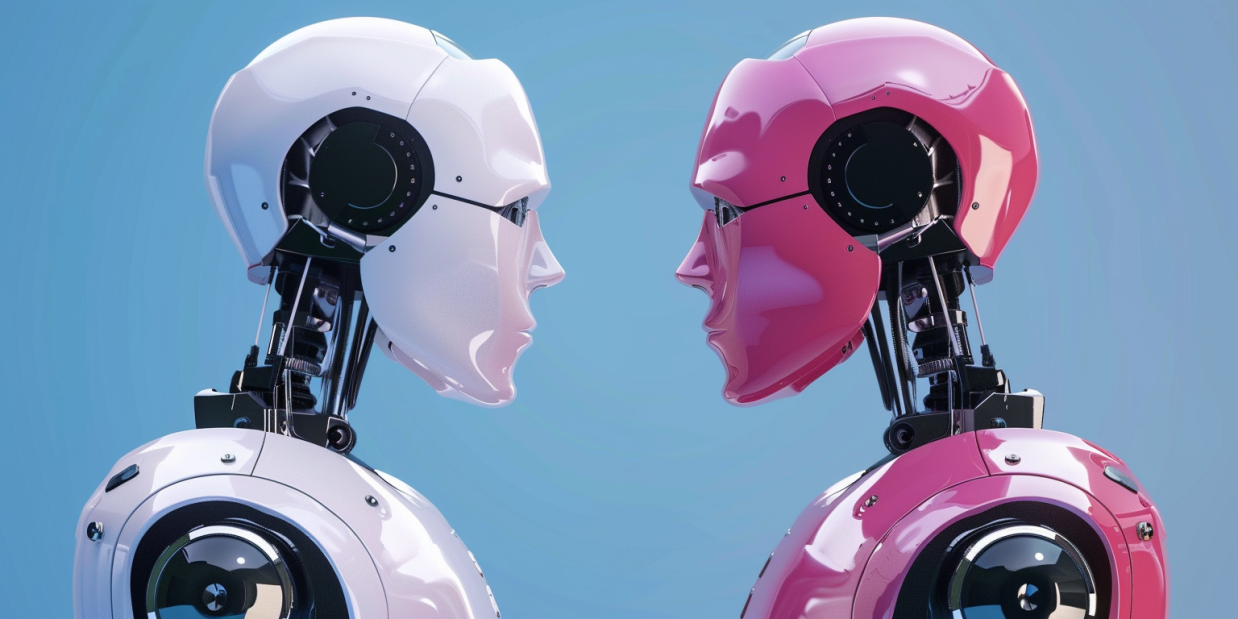AI and Automation: Which Jobs Will Thrive, and Which Will Vanish?
Explore the impact of AI and automation on jobs, identifying at-risk and thriving roles. Gain insights and guidance on navigating the automated job market. Embrace change, invest in education, and seize promising opportunities for the future.
Get referred to your dream company
Sections
The digital transformation, spearheaded by Artificial Intelligence (AI) and automation, is reshaping the global job market with unprecedented velocity and scale. As these technologies advance, they bring forth a significant shift in the employment landscape, marking some jobs for obsolescence while paving the way for new opportunities. This blog post delves into the jobs most likely to be affected by AI and automation and those expected to grow, offering insights into the future of work.
Jobs at Risk of Automation
The integration of AI and automation into daily operations signifies a profound change, especially for roles that involve repetitive tasks or tasks that can be algorithmically defined. Here's a look at the jobs most vulnerable to automation:
Automation has long been a staple in manufacturing, but AI technologies have accelerated the trend. Robots and automated systems are increasingly taking over tasks such as assembly, packing, and even quality control, leading to a reduced need for human labor in these areas.
2.
AI and machine learning algorithms excel at processing and organizing large volumes of data quickly and accurately. As such, jobs centered around manual data entry are highly susceptible to automation.
3.
AI-powered chatbots and voice recognition systems are becoming more sophisticated, capable of handling customer inquiries and support tasks with increasing complexity. This reduces the demand for human telemarketers and customer service representatives in certain contexts.
4.
Software that automates bookkeeping tasks and financial transactions is becoming more prevalent. While the strategic and advisory roles of accountants are less likely to be automated, clerical tasks within the field are at high risk.
5.
With the advent of autonomous vehicles, jobs in transportation and delivery services face significant transformation. From self-driving trucks to drone delivery, the landscape is evolving rapidly.
Jobs Expected to Grow
While automation poses a threat to certain jobs, it also creates a myriad of opportunities in other areas. The demand for workers who can design, maintain, and work alongside AI and automation technologies is on the rise. Here are some of the roles expected to flourish:
1.
As businesses seek to integrate AI into their operations, the need for skilled professionals who can develop, manage, and implement AI systems is skyrocketing.
2.
The digital age produces vast amounts of data, driving demand for professionals who can interpret and leverage this data to inform business decisions, improve customer experiences, and drive innovation.
3.
With the increase in digital operations comes greater vulnerability to cyber threats. Professionals skilled in protecting networks, systems, and data from cyber attacks are increasingly vital.
4.
While certain administrative tasks in healthcare may be automated, the need for human touch, empathy, and complex decision-making in patient care ensures the growth and sustainability of jobs in this sector, especially as global populations age.
5.
Jobs that require creativity, emotional intelligence, and interpersonal skills, such as artists, designers, writers, and marketers, are less susceptible to automation. The unique human ability to create, imagine, and innovate ensures the continued demand for creative professionals.
Navigating the Transition
The shift towards a more automated and AI-driven job market necessitates a proactive approach to workforce development and education. Upskilling and reskilling will become critical strategies to ensure workers can transition into the jobs of the future. Moreover, fostering a culture of continuous learning and adaptability will be essential in preparing for the roles yet to be created.
Conclusion
The impact of AI and automation on the job market is profound, marking a pivotal shift in the types of jobs that will thrive and those that will diminish. While the threat to certain roles cannot be understated, the opportunities for growth and innovation in new areas offer a counterbalance. By embracing change, investing in education and skills development, and fostering adaptability, workers and businesses alike can navigate this transition toward a promising and inclusive future of work.
In this era of technological advancement, the narrative is not solely about job loss but about transformation and opportunity. The future of work in an AI and automation-driven world is not a zero-sum game; it's an evolving landscape of challenges and opportunities. By understanding which jobs will thrive and which will vanish, stakeholders can better prepare for the changes ahead, ensuring a resilient and robust job market ready to embrace the future.
Your career is worth investing in.
Get unlimited referrals with Premium.
Community
© 2025 Crucible Fund LLC. All rights reserved.
